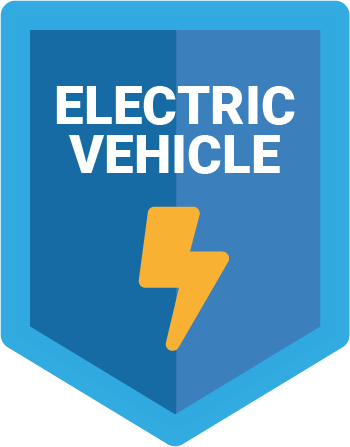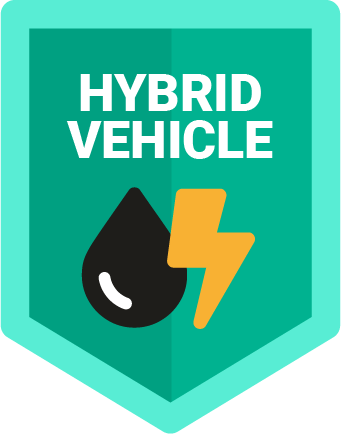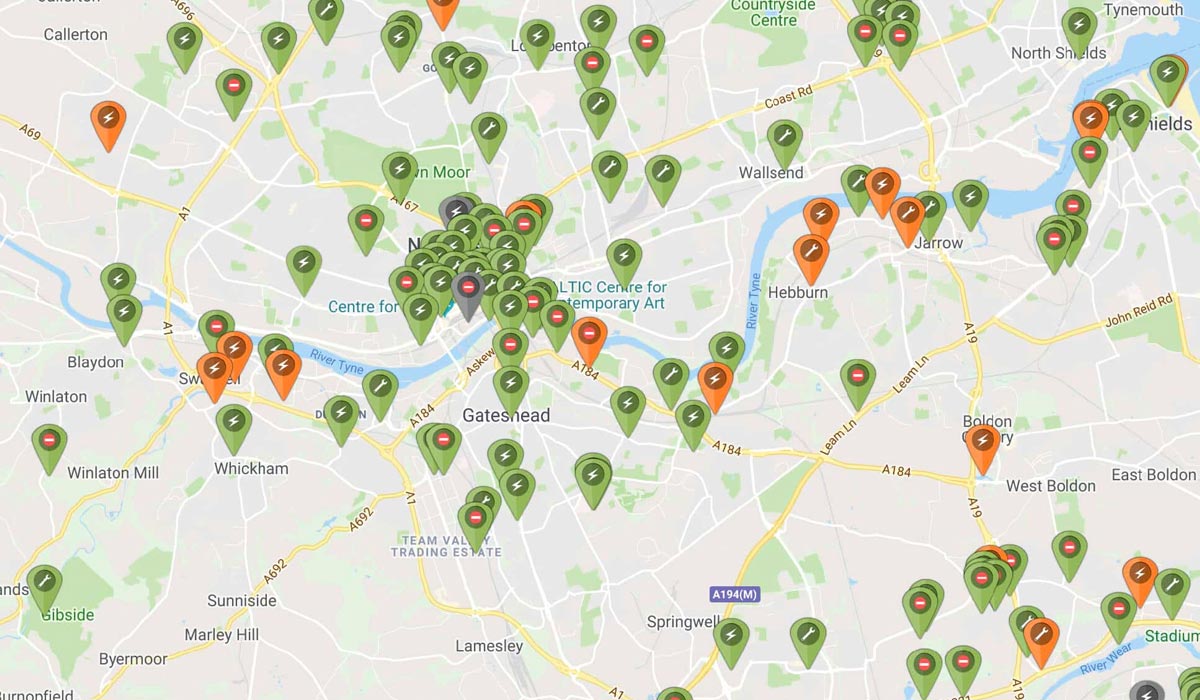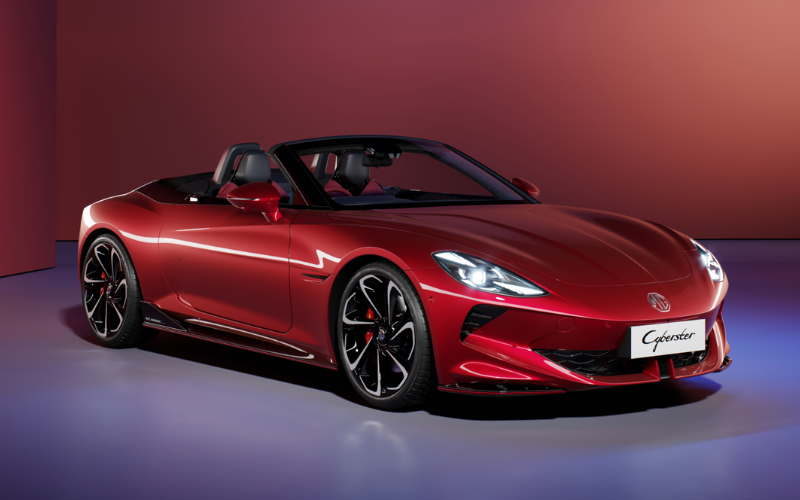How Do Electric Cars Work? Your Macklin Motors Guide
New to the world of electric vehicles (EVs)? Learn all about how electric cars work in our handy guide.
More and more Scottish drivers are ditching fuel cars in favour of electric cars and an estimated one in seven new cars sold in Scotland is fully electric. So, are you ready to join them and make the switch?
With electric cars now available from Ford, Hyundai, KIA, Mazda, MG, Nissan, Peugeot, Renault, Toyota, and Vauxhall, there's more choice than ever. Along with more choice, cheaper running costs, and low to zero road tax, the benefits of electric cars are endless. You could also be eligible for funding to cover up to 75% of the cost of installing a home chargepoint (maximum £350 per grant), if you own and live in a flat or rent any residential property.
A lot of electric cars now give you the power to go further, whether you are driving to work, or on your next family adventure. There are some premium cars that can offer a huge fully-electric driving range of 400 miles.

Thanks to rapid charging points, charging times of electric cars are only set to become quicker. Rapid charging points use more power than standard electric vehicle chargers, delivering up to 80% charge in just 30 minutes.
More and more charging points are being installed with over 2,500 in Scotland alone and over 30,000 across the whole UK, making it easier than ever to charge your electric car.
If you aren't ready to pull the plug on fuel cars just yet, a hybrid gives you a taste of electric driving, without the stress of running out of charge on long journeys. Hybrids supplement an electric battery with a petrol or diesel engine. You can still enjoy the same great benefits as an electric car, with a short fully-electric driving range of about 30 miles and reduced road tax.
Scroll through our electric vehicle timeline to learn how the industry has progressed from the first known electric prototype to the cutting-edge vehicles that we see on our roads today.
View the EV timelineVisit your local Macklin Motors dealership to view our electric car range and book a test drive now. Need some help choosing the right electric car for you? We are proud to have more EVA approved dealers than any other UK retailer, with 21 across the wider Vertu Motors Group.
Hybrid electric vehicles blend a petrol or diesel engine with a rechargeable electric battery and can sometimes also be known as mild hybrids or self-charging hybrids. When you slow down or brake in a hybrid car, the energy lost from this process is then recycled and re-used as electric charge that is stored in the battery. This recycled energy can offer a short range of fully-electric driving.
Just like hybrids, plug-in hybrids also blend a petrol or diesel engine with a rechargeable electric battery and can deliver a fully-electric driving range of about 30 miles. As the name suggests plug-in hybrids can be plugged into the mains to be charged and these types of cars offer great fuel efficiency if the battery is regularly topped up.
Unlike hybrids and plug-in hybrids, battery electric vehicles have no fuel input and are powered completely by a rechargeable electric battery, and recycle the energy lost from when you slow down and brake. Battery electric vehicles do generally need to be charged using a charging point, but there's now over 30,000 in the UK that you can utilise.
A Bi-Fuel car can run on two different fuel types, with each stored in a separate tank. Switch between fuel types, or when one runs out, the other one will automatically be used. Bi-fuel cars run on a mixture of petrol or diesel and LPG (Liquid Petroleum Gas) which is typically cheaper than petrol.
A Range Extender (REX) is an additional power source to charge your electric car’s battery as you drive. This will kick in when your battery starts to run low and help you reach the nearest electric car charging point. A range extender will not power your car but provide power to charge the battery.
There are tons of benefits to both battery electric and hybrid vehicles. Find out which one will work best for you and your lifestyle.

Battery electric vehicles have no reliance on fuel and are powered by a rechargeable electric battery that can be charged at home or public charging points.

Hybrid vehicles fuse a petrol or diesel engine with a rechargeable electric battery that offers a short range of fully-electric driving when topped up from the mains.

Most electric cars have an automatic transmission offering fun and instant acceleration without the hassle of changing gears. There's also little to no noise on the road, unlike petrol or diesel cars.

Experience the best of both worlds with a hybrid car. Quiet, zero emissions driving when using full electric energy, or improved performance and fuel efficiency thanks to the petrol or diesel engine.

Electric cars seem more expensive at first when compared to petrol or diesel cars but are extremely cost-effective in the long run. Cheaper running costs, no road tax, and Government grants can all sweeten the deal.

If you aren't quite ready to go fully electric, a hybrid is great step in the right direction and gives you a taste of electric driving. Hybrids benefit from reduced road tax and offer a short fully-electric driving range, all with the added reassurance of being able to fuel up with petrol or diesel.

If you are looking to reduce your car running costs and environmental impact, a battery electric car is the car for you. With so much choice now available, faster charging, and longer driving ranges, the benefits are endless.

If you regularly drive longer distances, a hybrid car is probably your best bet. With the flexibility to drive small distances fully electric, the petrol or diesel engine put any worries about running out of charge at ease.
Learn more about our new electric and hybrid car range from world leading manufacturers and make the switch to electric today with Macklin Motors.
With over 30,000 charging points in the UK, and more popping up each year, charging your electric car has never been easier. View a live map of your local charging points by clicking the button below.
You can also charge a lot of electric and hybrid vehicles from home using a standard three-pin plug, or a home charging point. If you do decide to install a home charging point, you could be eligible for a grant from the Government to make it more affordable.

How much are electric cars?
As with any product you buy, the cost of purchasing will vary depending on where you buy it from. It is currently estimated in the UK that the average price for electric vehicles is about £44,000 - but that's just midmarket, you can get them cheaper for some brands at around £27,000.
Drivers looking for a more high-end vehicle could expect to pay up to £80,000. Researching the different offers available will help you to decide what's in your budget, and how to find the right EV for your needs.
Why not explore our current electric vehicle range to get started?
[1] Source: Average Cost of an Electric Car UK 2022 | NimbleFins
How long do electric car batteries last?
Powered by lithium-ion batteries, an EV battery traction pack is much more powerful than the average AA or AAA battery, which is why you can expect it to last longer. They have a higher capacity and are capable of recharging more efficiently, which makes them great for powering an electric vehicle.
An electric car battery should be between 10-20 years before a replacement is needed - that's more than the entire lifespan of a traditional combustion engine vehicle.
Are all electric cars automatic?
Yes - most electric cars are automatic. The reason for this is because unlike petrol or diesel cars, electric vehicles are made with a single gear transmission which performs several functions.
You only need to select forward, reverse or neutral/park, and the car will do the rest. The speed is easily controlled with the accelerator, as well as by a controller which monitors power distributed to the wheels.
How do electric cars work?
Electric cars work differently to standard combustion engines. Rather than burning fuel to produce energy, electric cars use battery-powered motors to power the wheels of the car.
The motor is connected to one of the axles in the wheels, either the front or rear. Some manufacturers add additional motors to the opposite axle or on all four wheels to produce an all-wheel drive.
A controller will monitor the speed distributed during the drive to help you control your speed. When the battery runs low, it can be charged simply through plugging in to a power source.
Depending on whether the car is an electric or a hybrid, some models can store energy generated while driving.
How long does it take to charge an electric car?
This will likely depend on the type of charging facility you use. There are 3 broad categories for charging stations in the UK: rapid, fast, and slow. As you would expect, rapid chargers (>50kw) will top up your EV in next to no time, charging compatible batteries up to 80% in less than 30 minutes.
Fast chargers (7kw to 22kw) will charge compatible batteries in around 1-5 hours depending on the size of the battery and speed of the charger used. These are most commonly found in public places such as shopping centres and car parks, which is why they are also known as 'destination chargers'.
As their name suggests, slow chargers (2.4kw to 6kw) will take the longest to top up your EV battery. These can take anywhere from 12 hours or more, meaning they are commonly installed in homes and some workplaces (where there is less need for instant charging).
What is the best electric car?
We know that when making a large investment such as a car, you will want to be sure you're getting the best. With the switch to electric motoring growing rapidly, there is a wide choice of models available to suit your lifestyle.
Since everyone has a different preference when it comes to cars, it may be worth doing your research to see what's available and help you find the perfect electric car for you. To get you started, explore our electric vehicle range.
Are electric cars better for the environment?
Due to the fact they produce no emissions, electric vehicles are much less harmful to the environment when compared to the high CO2 emissions in petrol and diesel vehicles. In fact, EDF energy suggests that just one electric vehicle on our roads can save up to 1.5 million grams of CO2 pollution.
How far can an electric car go?
The distance your electric vehicle will be able to travel depends on the size of the battery. However, most electric vehicles on the market today currently tend to offer a range of between 200-300 miles, which is plenty to get you where you want to go.
More expensive models tend to offer a greater range, in the region of 400 miles. Drivers need not fear 'range anxiety' however, as more charging stations are appearing around the country every year.
Are electric car charging stations free?
According to Energy Saving Trust, Scotland's leading provider ChargePlace offers free charging at most of its stations, meaning there may be no cost involved. Users can simply download an app to set up an account beforehand - so they can easily charge their vehicle on-the-go.
How much does it cost to charge an electric car?
If you plan on owning an EV, you'll need to swap the petrol pump for the charging plug. But how much will it cost? If you charge your EV at home with an installed charger, this will cost you around £15.10 according to Pod Point, a leading provider in the UK.
They also estimate that the average domestic electricity rate across the UK is about 28p per kWh, based on the standard 7kw home charger.
On the road, you could charge your vehicle with a rapid charger up to a 90-mile charge for only £6.50 at most motorway service stations, while many supermarkets and car parks offer this service to customers for free.
Will I need to pay road tax on an electric car?
Good news - you will not need to pay road tax on a fully electric car! Also known as Vehicle Excise Duty (VED), road tax is paid annually and calculated based on the amount of CO2 emissions produced by your vehicle, but since electric vehicles produce zero emissions, they are exempt. You will still need to apply for and renew your road tax, or you could get a £1,000 fine.
Rules are slightly different for plug-in hybrid electric vehicles (PHEVs), as they will need to pay a small VED fee. This includes hybrids costing £40,000 or more which will pay an annual supplement for 5 years (starting after the second time the vehicle is taxed).
Can you charge electric cars at home?
Yes - electric cars can be easily charged at home, using a standard three-pin plug for plug-in hybrids (PHEVs), and a dedicated charging unit for battery electric vehicles (BEVs).
Home charging is the cheapest, most convenient way to charge your vehicle, and the quickest way is through using a wall-mounted charging unit. A 7kW home charger for instance can charge your vehicle up to three times faster than a domestic socket.
Smart home chargers are also available to help owners take advantage of cheaper energy tariffs, so it can be quick and reasonably cheap to charge your vehicle at home.
Are Government grants available to help with the cost of an electric car?
The plug-in car grant launched by the Government in 2011 has ended. The scheme helped increase EV usage from just 1,000 in 2011 to almost 100,000 by the first half of this year.
All existing applications for the grant will still be honoured, and those who have recently purchased an EV but have not yet made an application will still be eligible.
The Government now intends to focus on electric taxis, vans, motorcycles and wheelchair accessible vehicles, and improving the UK's public charging network.
You can, however, still benefit from the Government's EV charging grant, if you own and live in a flat or rent any residential property. This offers to fund up to 75% of the cost of a home charging unit (maximum £350 per grant).

New to the world of electric vehicles (EVs)? Learn all about how electric cars work in our handy guide.

Learn about the top myths surrounding electric vehicles (EVs), and why they are exactly that.

Read on to learn more about the key similarities and differences between ICE cars and electric vehicles.

Read on to learn more about the new model that’s set to join the MG lineup this summer.
Come and test drive one for yourself - we think you'll be surprised!